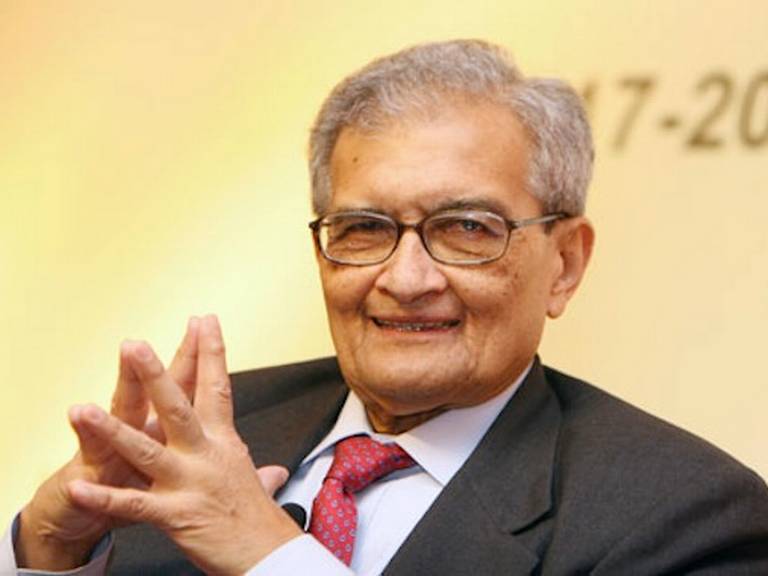NEW DELHI: Nobel Laureate and economist Amartya Sen has said that India as a nation had become too tolerant of intolerance.
Delivering the Rajendra Mathur Memorial Lecture organized by the Editors Guild of India memorial lecture on Friday, Sen said the Indians have enough reasons to be proud of their traditional tolerance and plurality but have to work hard to preserve it, according to Hindustan Times.
“The problem is not that Indians have turned intolerant. In fact to the contrary we have been much too tolerant of intolerance,” he said.
Talking about the recent attacks on writers and scholars, Sen said when people in minority (of scholarship of community) were attacked by organized detractors they needed the country’s support.
“This I am afraid not happening adequately right now and this did not happen adequately earlier as well. But then it did not start with the present government though it has added substantially to restrictions already there,” he said while delivering a lecture on “The Centrality of the Right to Dissent “.
Recounting how M F Hussain, the acclaimed painter, was hounded out of this country “by relentless persecution led by a small organized group”, Sen said it did not get the kind of support that could have stopped his migration.
“In this case, however, the Indian government at least was not involved though it could have easily protected Hussain. Indian government’s complicity, however, was much more direct when India became the first country in the world to ban Salman Rushdies’ Satanic Verses,” he said.
Referring to the Dadri incident in which Mohammad Akhlaq Saifi was lynched by a mob for allegedly storing beef in his home last year, Sen said the Constitution did not have anything against anyone eating beef, storing it in the refrigerator even if there were some people who were offended by other people’s food habits.
“Murders have occurred on account of hurt sentiments arising from private eating,” he said.
Sen said most Indians, including Hindus like him, accepted the food habits of those belonging to other groups and were ‘familiar and tolerant’ of other people’s religious beliefs.
Citing solution to the prevailing situation of intolerance, he said it could be done by first, blaming the Indian Constitution for what it does not say, second to not allow some of the colonial rules under the Indian Penal Code go unchallenged and third that we should not be tolerant about intolerance which undermines our democracy.






